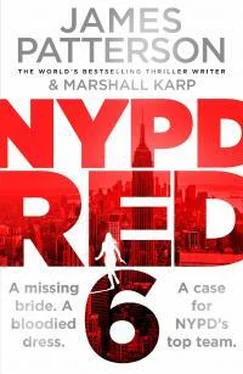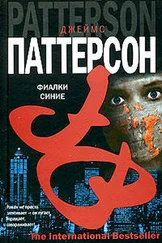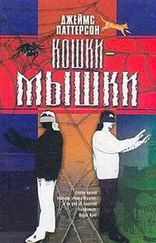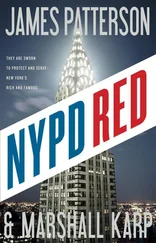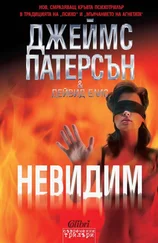“Buckle up,” she said, firing up the light bar and hopping onto the sidewalk to make a U-turn. She gave the siren a couple of whoop-whoop s, yelled, “Out of my way, people,” to pedestrians and drivers who needed no verbal warning, and barreled the wrong way down a crowded one-way street.
By the time I grabbed the radio and turned it to a citywide channel, we were tearing across Jerome Avenue toward the service road to the Deegan.
I keyed the mic. “Central, this is Red One. Be advised we are in pursuit of a homicide suspect driving an FDNY ambulance. He’s headed north on the Deegan from Yankee Stadium.”
Some calls bear repeating. Central didn’t disappoint.
“Unit,” she said, “you are advising me that you are chasing an FDNY ambulance , and that it is being driven by a homicide suspect .”
“Affirmative. Notify aviation. The bus number is three-one-four.”
I still had Joe Donahue at DOI on my cell. “Joe, I need an update.”
“He just passed Van Cortlandt. He’s heading into Westchester.”
There’s a confounding rule about pursuing a vehicle outside of our jurisdiction. Technically we couldn’t chase him unless we had him in sight. We weren’t close enough to see him, but I wasn’t exactly about to broadcast that.
“Central, notify state, county, and local that we are crossing into Westchester.”
“Ten-four, Red One. Will notify them immediately.”
Immediately in dispatcher-speak doesn’t mean “instantaneously.” It takes a while for one dispatcher to contact the other, and then it takes another while for the second dispatcher to get the word out to her troops.
While that was going on, Kylie was eating up the distance between us and Banta. He had a head start, but city ambulances aren’t as fast as people might think. They get where they’re going in a hurry because they can break traffic laws and clear a path for themselves. But on a drag strip, a cop car would leave Banta’s bus in the dust.
A new voice came over the radio. Male, deep, with a Jamaican lilt. “Bronx Auto Crime, Central. Get me a current location on Red One.”
Kylie’s eyes were glued to the road, but I could see the grin spread across her face. Some bored-out-of-his-gourd detective who had been cruising the streets of the Bronx on a stolen-car detail just hit the high-speed-chase lottery.
“Red One, Central. We are north through Van Cortlandt Park.”
“Auto Crime, Central. Show us responding toward that location.”
When something big breaks on citywide, any cop who picks it up is going to radio his buddies and tell them to roll over to that channel. Within minutes half the cops in the city would be tuned in to the drama on the Deegan and hoping it would come their way.
The radio lit up, and by the time we crossed the city line into Yonkers, Bronx Narcotics and Highway One had signed on for the ride. And by the time we passed the Empire Casino, three more cars and an ESU truck were en route to join the posse.
“No shortage of volunteers,” I said.
“NYPD chasing FDNY. Who wouldn’t want a piece of that?” Kylie said. “At best, these cops figure they have a shot at being on the six o’clock news. At worst, they’ve got a war story to spin at the bar tonight. I bet for most of them, it’s better than sex.”
I checked in with DOI. “Joe, what do you got?”
“He jumped off the Deegan. He’s on the off-ramp to the Sprain.”
“We are about a mile shy of the Sprain,” I said. “We’re gaining on him.”
“Hold on, he didn’t get on the Sprain. He took a right on Tuckahoe Road.”
“He had a clear shot to the thruway,” I said. “Siren or no siren, how does he expect to outrun us if he’s taking local streets?”
“He’s not getting on the highway. He just turned onto East Grassy Sprain Road.”
“I never heard of it. Where the hell does it go?”
“It runs parallel to the parkway. It goes through Yonkers, past a bunch of businesses, private homes, a golf course, a school—makes no sense.”
“We’re on East Grassy Sprain now,” I said. “I have eyes on him.”
I called our location in to Central, which was still getting units responding left, right, and center. Wherever Banta was going, there was a shitload of cops going with him.
We were less than two city blocks behind him when I saw the big green and white sign: sprain lake golf course.
There was a redbrick guardhouse with a flimsy wooden barrier at the front gate. Banta could have easily crashed through it, but his siren worked its magic. The guard lifted the gate just as he sailed through. Kylie gave him a whoop-whoop , and he wisely kept it open.
If I’d thought Gary Banta were stupid, I might’ve assumed he’d just driven himself into a dead end. But Gary was a planner. He knew where he was going, and clearly, he had played this course before.
I scanned the fairway. The grass was lush—soft, green, and wet. Emphasis on wet. The golfers were either carrying their bags or pulling them along with two-wheelers. The course was too soggy for motorized golf carts.
That didn’t stop Gary from turning his five-ton beast off the road and powering it onto the perfectly manicured green carpet.
Kylie followed.
Clods of mud as big as basketballs flew up and pelted our windshield. She goosed her washers and turned on the wipers, but that only made it worse. We were driving blind.
By the time Kylie saw the sprinkler head, it was too late. It chewed up our left front tire, and we came to a sudden hard stop.
I jumped out of the car. The EMS bus was at least two football fields away. And then I heard it.
Helicopter.
But it wasn’t one of ours. It was Gary Banta’s ride out.
CHAPTER 71
WE CAN DO IT,” Kylie said. She got out of the car and broke into a run.
And then we heard the howl. Siren.
We both turned. A chocolate-brown Chevy Impala, strobe lights white-hot and flashing in the windshield, was tearing up the fairway, regurgitating mud-caked green divots, thick as yesterday’s porridge, onto the already ravaged hallowed grounds.
“Cavalry,” Kylie said.
The back door flew open, the car slowed, and Kylie and I piled in.
There were three of them in the car, one white, one black, one brown—young, lean, and undercover. They had the requisite tats on their arms and seven-day stubble on their faces; their shirts and jeans were just ratty enough to be urban cool. They looked more like a boy band than the cavalry.
“Are you the Red team who needs help catching a bus?” the guy in the front passenger seat said. “Sorry to keep you waiting.” His buddies laughed.
“You Bronx Auto?” Kylie said, picking up on the Jamaican accent. “I thought they were sending real detectives.”
Bigger laugh. Cops busting cops’ balls, even at a time like this.
“Son of a bitch,” the driver said as we skidded into a ninetydegree turn. “This wreck fits right in at the Webster Projects, but it ain’t worth shit on the golf course.”
He jammed the gearshift into low, got traction, and righted the car. “What’d they do?” he said. “Kill somebody and steal a bus?”
“Home invasions. One old lady died. And they’re legit EMTs,” Kylie said.
Brothers under the same blanket. A sobering detail. Head shakes all around.
“Armed?” the Jamaican asked.
“Presumed,” I said, my eyes glued to the chopper that had just settled onto a putting green. The bus tried to barrel through a sand trap. Big mistake. Wheels spinning, kicking up a sandstorm, it ground to a halt.
Doors were flung open. The driver, white, and his partner, black, scrambled out and headed for the helicopter, which was a solid fifty yards away. The black guy was fast, agile, but the driver, Banta—I was sure of it—was slow navigating his way out of the wet sand.
Читать дальше
